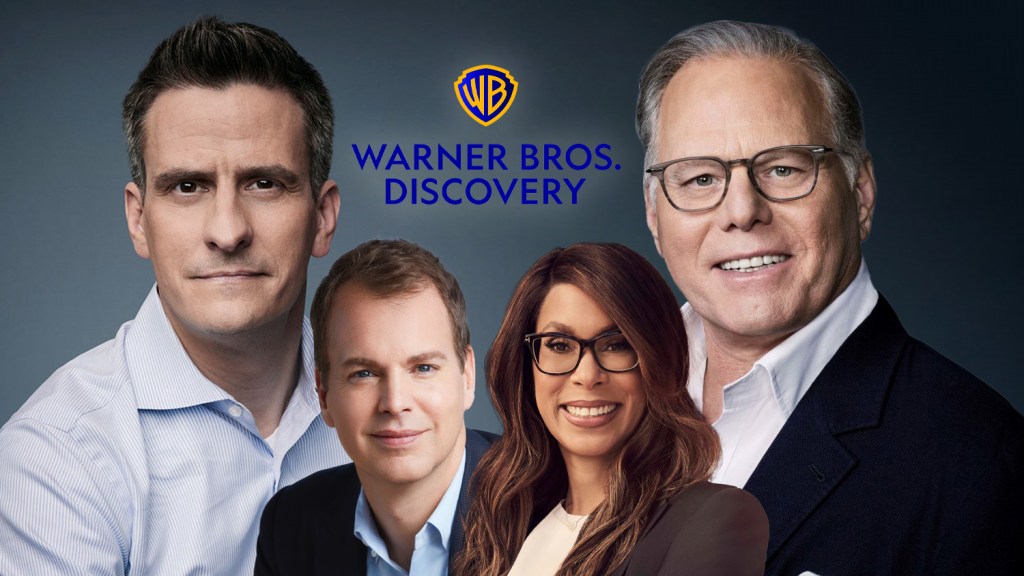Monday’s announcement that Warner Bros. Discovery will divide into two distinct entities—one focusing on studios and streaming, the other on linear TV networks—has set the stage for Hollywood’s latest corporate drama. The move, expected to finalize by the second half of 2026, raises questions about leadership and future strategies for both companies.
David Zaslav, who has led Warner Bros. Discovery as CEO since the 2022 merger of Discovery and WarnerMedia, is slated to head the “S&S” (Studios & Streamers) division. Meanwhile, Gunnar Wiedenfels, the company’s CFO, will take on the role of CEO for the Global Networks company. This strategic split is designed to allow each entity to operate more efficiently and pursue growth independently.
Strategic Rationale Behind the Split
The decision to split Warner Bros. Discovery comes as a surprise to some, though it reflects a broader industry trend towards specialization and focus. During a call with Wall Street analysts, Zaslav emphasized that the separation will enable both companies to “go further and faster apart than they can together.” Wiedenfels echoed this sentiment, noting that both entities will be “free and clear” for mergers and acquisitions immediately after the split, without the two-year waiting period that followed the original merger.
Analysts have been quick to weigh in on the implications of this move. Doug Creutz from TD Cowen suggested that Wiedenfels’ appointment indicates a focus on financial efficiency, possibly hinting at future strategic transactions. Michael Morris of Guggenheim humorously dubbed Wiedenfels “Top Gunnar,” highlighting his financial acumen.
Leadership Dynamics and Industry Comparisons
Wiedenfels’ ascent from CFO to CEO is unusual in Hollywood, where operational and creative experience often take precedence. His background includes finance roles at ProSiebenSat and McKinsey & Co. in Hamburg. While not as controversial as Zaslav, Wiedenfels has faced criticism, notably for dismissing concerns over the cancellation of a Batgirl movie for tax benefits.
Comparatively, Comcast’s approach with its NBCUniversal spin-off, Versant, involved appointing Mark Lazarus, who brings extensive programming and operational experience. This highlights the varied paths media companies take when selecting leaders, with some, like Charter Communications, occasionally elevating CFOs to top roles.
Intrigue Surrounding the Studios & Streamers Division
The S&S division, housing prestigious assets like HBO and Warner Bros, is rife with intrigue. Zaslav’s ambition for movie-mogul status, underscored by his move into Robert Evans’ former home, has been both celebrated and criticized. His decision-making has at times sparked controversy, such as nearly shuttering Turner Classic Movies, a move averted by intervention from filmmakers like Steven Spielberg and Martin Scorsese.
Internally, the split is seen by some as a potential precursor to Zaslav’s retirement. A former executive noted the plan’s “valedictory quality,” questioning whether Zaslav would want to lead a smaller entity. At 65, Zaslav’s future remains uncertain, though his recent recall of David Leavy to a senior post suggests ongoing involvement.
Future Leadership and Market Reactions
Speculation about Zaslav’s successor includes Casey Bloys and Channing Dungey, both of whom have played significant roles in the company’s recent activities. Bloys, praised by Zaslav as a “generational talent,” has been instrumental in HBO’s success. Dungey, meanwhile, has reaffirmed her commitment to Warner Bros Television Group, dispelling rumors of her departure.
For investors, the timing of the split raises questions. MoffettNathanson analyst Robert Fishman noted the surprise timing, suggesting external pressures like S&P’s recent downgrade of WBD’s debt and the company’s depressed stock price may have influenced the decision. Despite an initial stock surge, shares fell by 2% to close at $9.77, reflecting market uncertainty.
As Warner Bros. Discovery navigates this transformative period, industry observers and investors alike will be watching closely to see how the split unfolds and what it means for the future of Hollywood’s ever-evolving landscape.
